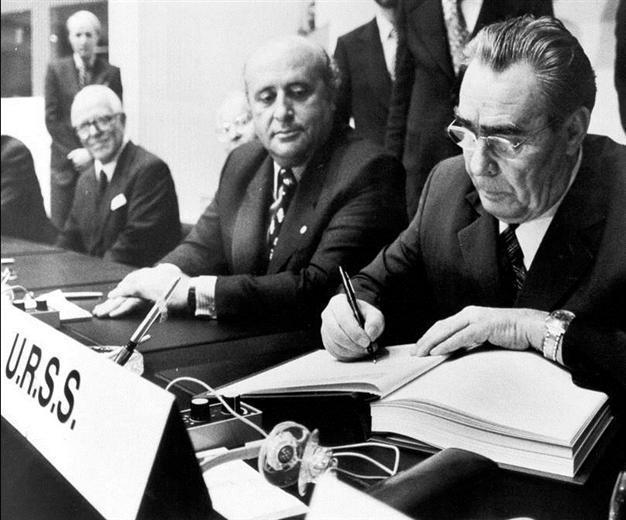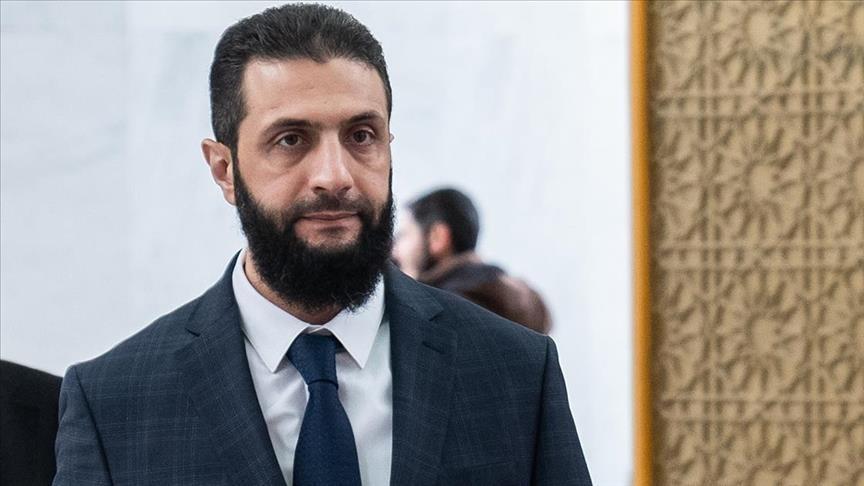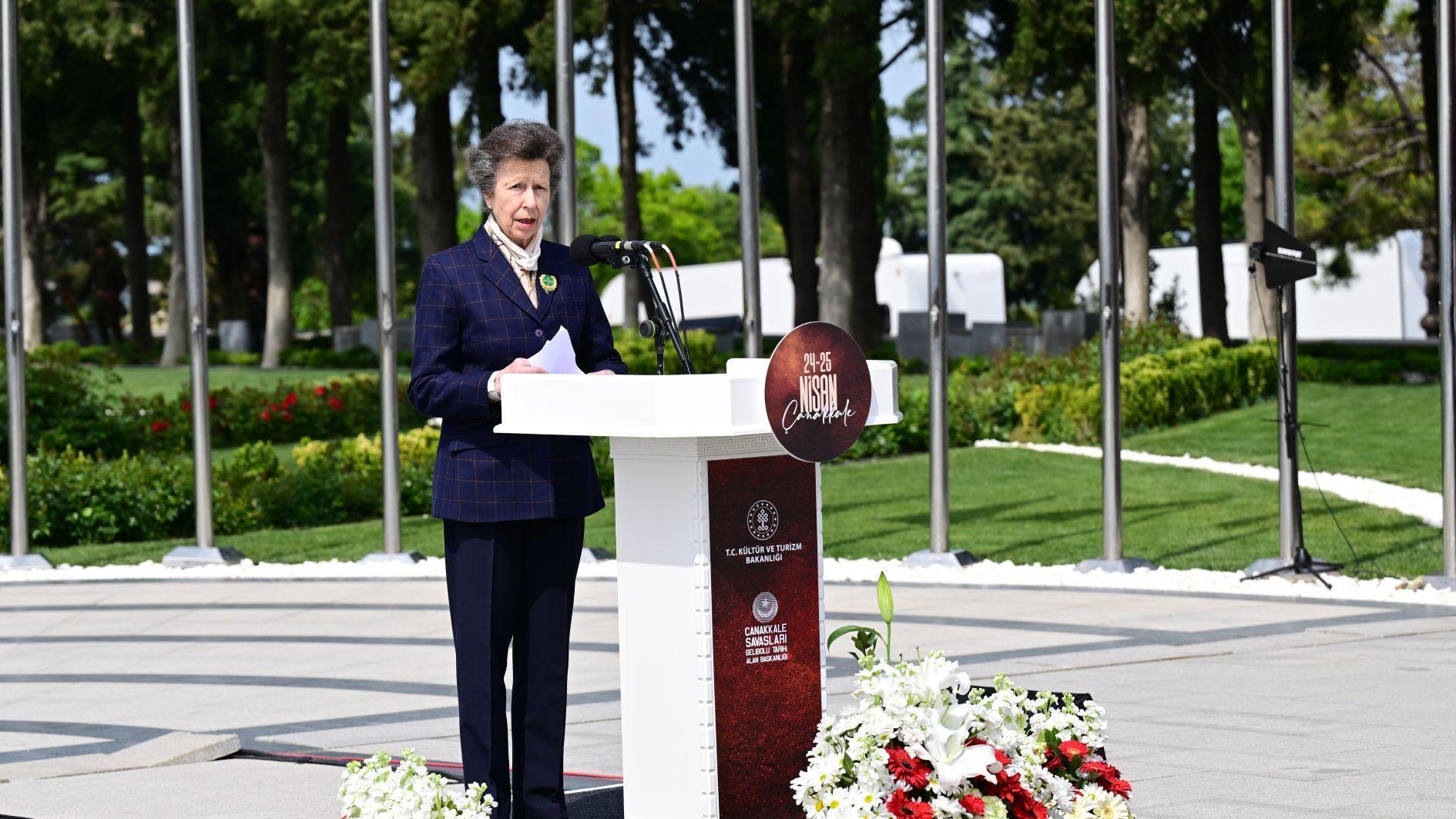I don’t want to remember Demirel, good or bad
BELGİN AKALTAN - belgin.akaltan@hdn.com.tr

Leonid Brezhnev, General-Secretary of the Communist Party of the USSR, signing the Final Act, with Turkey's Prime Minister Süleyman Demirel to the left, Helsinki, 1 August 1975. Source: OSCE
My youth was spent hating him. Of course we did not know that, in the coming decades, my generation and I would develop a bigger capacity for hate and bigger reasons to accommodate hatred.Those who came after him actually did broaden our ability to hate.
At that time, we had no idea that worse was to come, or what waited for Turkey in the future, but we spent years and decades hating him, wishing and yearning when Turkey would be without him at last. There are songs written for him, “Süleyman, hep başbakan,” which translates into “Süleyman is always the prime minister; always he is.”
It was in 2000 when I took up a position in the Organization for Security and Co-operation in Europe (OSCE) and we were in a general orientation course in Vienna. The OSCE had evolved from a conference, the Conference on Security and Co-operation in Europe (CSCE), into an international organization and the Helsinki Final Act was signed in 1975. A picture of those signing the document was projected at a big screen and the international attendees were all surprised to see the - mostly deceased - former leaders of their countries.
Among the signatories were Helmut Schmidt, Erich Honecker, Todor Zhivkov, Pierre Trudeau, Makarios III, Urho Kekkonen, Valéry Giscard d’Estaing, Gerald Ford, Harold Wilson, Konstantinos Karamanlis, János Kádár, Aldo Moro, Nicolae Ceauşescu, Olof Palme, Gustáv Husák, Leonid Brezhnev, Josip Broz Tito and of course our Süleyman Demirel. My colleagues were looking at history while I was looking at the present as a Turk. When I told them he was still the president of Turkey, I had a bitter smile on my face while it sounded like a good joke to them.
I have met him personally and, as I have seen in other leaders, he was a very impressive person, very convincing, with a natural charisma, despite the physical look of our race, which is quite below average. I had the impression that if I stood long enough around him, I would start believing him (I got the same impression from Turgut Özal and even Recep Tayyip Erdoğan).
Demirel ruled for many decades. If it wasn’t for his shallowness, his small Anatolian villager tricks, his stubbornness and his perception that he knows everything much better than others, then Turkey would have been in a different place now.
Turkey would be a much more advanced country, maybe an Italy, maybe a Spain and yes maybe a Greece right now instead of dragging itself through the darkness of the Middle East and the medieval times.
I wish he had known more about human rights instead of wasting time with micro-politics; I wish he had broader horizons and visions…
The women-hating interpretation of our religion is one of our country’s major handicaps, but another is our incompetent leaders, who are afraid of change, tolerance and initiative.
Do you know how many young people died in our undeclared civil war leading up to the Sept. 12, 1980, coup because this Demirel and his archrival Bülent Ecevit could not hold a decent conversation? Well, it was more than 5,000 people. And at the end of this anarchic era, we had a military coup, the consequences of which we are still suffering from today.
One of Demirel’s unforgettable quotes was, “You cannot make me say rightists are committing murders.” Well, sir, they were killing people at that time. They still are.
Yes, he was a different person after Sept.12 and during his presidency years, but the Demirel of the 1970s was one of the main reasons our country is at this frenzied state today. Correct acts do not wipe out the wrong ones.
The problems we have today were planted by him, with the seeds exploiting the national and religious feelings of people; using religion in politics, hating intellectuals, educated people and leftists and limiting this country to a primitive form of conservative ideology.
Demirel is the founder of this extant backward rightist political movement that hates science and scientific thinking, one which confines development into cement and iron.
Today we have a Turkey that was the dream of Demirel and the like, not you and me. We have bridges, tunnels and viaducts but no human rights, no free press, no gender equality, no scientific advances. It is the dream of a villager, a shepherd in Central Anatolia, not the dream of a universal person.
Despite all the above, I did vote yes in the referendum in 1987, which asked us whether or not to lift the political ban on former leaders such as Demirel and Ecevit. Not that I wanted to see Demirel back in active politics scene, but I voted to lift the political bans. What am I, Turkish Voltaire? (He said, I’m sure you all know, “I do not agree with what you have to say, but I’ll defend to the death your right to say it.”)
Enough ego, let us proceed...
I think people have an internship period in governing a country. The internship of Demirel turned out to be productive (but at the same time leaving its destructive marks on the country) when he evolved into a responsible statesman, but not all internships are standard; they vary in length and productivity.
https://twitter.com/belginakaltan
http://belgin.akaltan.com











